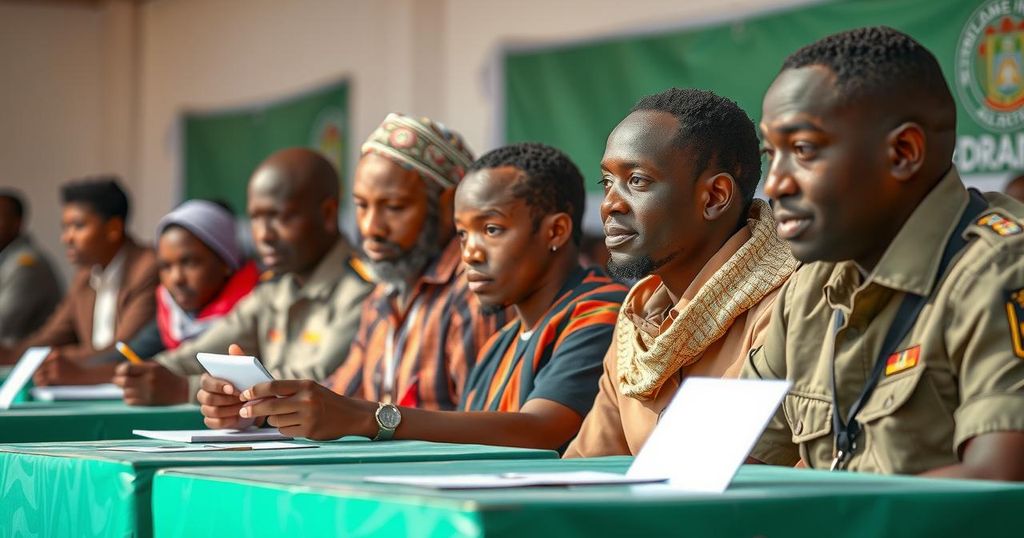Chad held a general election on Sunday amid low voter turnout and opposition boycott calls. President Mahamat Idriss Deby urged participation, while many citizens expressed disillusionment and concern over pre-determined results. The elections are positioned as a step toward ending military governance, yet skepticism remains prevalent among the populace, indicating challenges in achieving credible democratic transition.
Chad conducted its general election on Sunday, marking a significant move toward potentially ending three years of military rule. Despite government assertions about the importance of the election, voter turnout was notably low, with reports indicating approximately 38 percent participation. Opposition parties urged citizens to boycott the election, alleging that results had already been predetermined. In contrast, President Mahamat Idriss Deby Itno called for mass participation, emphasizing the historic nature of the day.
Reports of dissatisfaction emerged as citizens expressed disillusionment with the electoral process. Many believed their votes would not bring about real change, echoing sentiments from opposition leaders regarding manipulated outcomes. Voter turnout was reportedly higher among security forces and nomads compared to the general population, highlighting the varying levels of engagement across different community sectors.
Polls remained open until the evening and were monitored by a cohort of international observers. Meanwhile, local concerns persisted, notably regarding climate change impacts on nomadic communities, intensifying the urgency for elected representatives to address these issues. The election took place amidst ongoing security threats from jihadist groups and political tensions, framing this vote as a critical step towards democratization in Chad, following the leadership transition after the death of former President Idriss Deby.
Chad has been under military rule since April 2021, following the death of long-time President Idriss Deby. The transitional government led by his son, Mahamat Idriss Deby Itno, seeks to navigate the country back to civilian rule while claims of election fraud and voter manipulation mar the political landscape. The ongoing calls for boycotts and protests against the electoral legitimacy indicate a deep-seated skepticism among the population regarding the transitional regime’s intentions and ability to bring about genuine reform. The interplay of political dynamics, social unrest, and external pressures, including security threats from groups like Boko Haram, adds to the complexities surrounding this electoral process.
The recent general election in Chad has highlighted significant divisions within the population regarding political engagement and trust in the electoral system. While the ruling government promotes the elections as a conduit for democratic transition, widespread voter apathy and opposition-led boycotts suggest a fundamental disconnection between the political leadership and citizens. The challenges that lie ahead for the newly elected officials, especially in addressing local issues exacerbated by climate change and ensuring security, will be crucial in determining Chad’s path towards a stable and inclusive democracy.
Original Source: www.communitynewspapergroup.com






